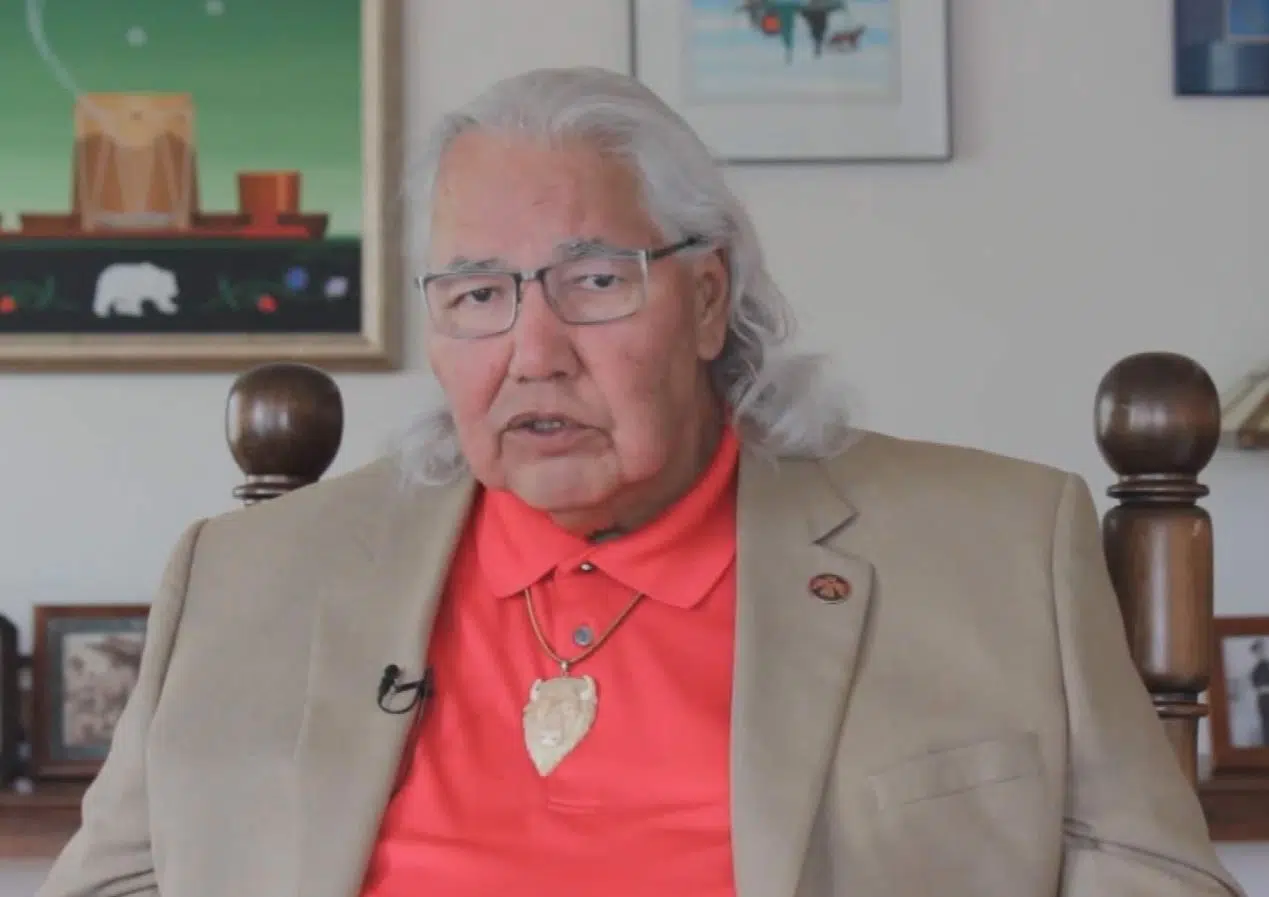
The former chairman of the Truth and Reconciliation Commission says Canadians should be prepared for the discovery of more unmarked graves at other residential school sites across the country.
Retired senator Murray Sinclair says the remains of children found at the residential school in Kamloops last week mirror horrendous stories he heard from survivors of the school system who talked about children who suddenly went missing, including into mass burial sites.
The discovery in Kamloops, Sinclair says, is evidence of the large number of children who died.
“Since the revelation of what has happened at Kamloops has come to light, I have been inundated with calls from survivors. Hundreds of calls, often just to cry,” he said in a statement on Tuesday.
“I can hear not only the pain and the anguish, but also the anger that no one believed the stories they had told. I can also hear their sense that they have lost some hope that maybe those children that hadn’t returned might still be found. They now know that may not happen.”
When the Truth and Reconciliation Commission asked if it could conduct a fuller inquiry to explore these stories, Sinclair says the request was denied.
“We submitted a proposal, as it was not within the mandate of the TRC, and that request was denied,” he added. “So largely we did what we could, but it was not anywhere near what we needed to investigate. Now we are seeing evidence of the large number of children who died.”
“We know there are lots of sites similar to Kamloops that are going to come to light in the future. We need to begin to prepare ourselves for that.”
The Kukpi7 of Tk‘emlúps te Secwepemc says she “absolutely” believes there will be more children found in Kamloops, as crews have not searched all of the residential school grounds.
“We do know that many other First Nations that have had residential schools in their communities, also, too, want to learn, and want to use new technology to be able to find their lost loved ones as well,” Rosanne Casimir said.
Sinclair notes the survivors and intergenerational survivors need to understand that this information is important for all of Canada to appreciate the magnitude of the truth of the experience of First Nations People.
“One aspect of residential schools that really proved to be quite shocking to me personally, was the stories that we began to gather of the children who died in the schools,” he added. “Of the children who died, sometimes deliberately, it was at the hands of others who were there, and in such large numbers.”
“The stories from the survivors proved to be horrendous. One of the most common stories that we heard were from survivors who talked about the children who died in the schools and whose deaths they witnessed. Just as often, we heard about the loneliness and separation from their family – how they lost so much.”
Sinclair says Canadians must persevere in the investigation into what happened at the schools and ensure that healing programs are in place to help survivors to gather and share their memories and stories.
Casimir meanwhile notes Canada has to face ownership and accountability about the past, noting the community as a whole is burdened with the legacy of a federally mandated Indian Residential School.
“Our community is still gathering all the facts in this evolving tragedy,” she said. “We have heard from many survivors, from our own community and beyond, “Casimir added. “They are finally being heard after so many years of silence and disbelief about the deaths of children in the residential schools.”
Moving forward, she is also asking all Canadians to “reacquaint themselves with the Truth and Reconciliation Commission Final Report and Calls to Action.”
During her COVID-19 update on Monday, B.C. Provincial Health Officer, Dr. Bonnie Henry pledged her commitment to changing the systems and laws that continue to hurt Indigenous people across Canada. Earlier in the day, Premier John Horgan said all Canadians have a responsibility to acknowledge the dark past of the Residential School System head on
There are also renewed calls for the Pope to apologize for the trauma that residential schools have caused. Several Catholic bishops in Canada have issued statements expressing sorrow and shock while offering prayers to the Tk’emlúps te Secwépemc.
The Truth and Reconciliation Commission operated between 2008 and 2015 and provided Indigenous people directly or indirectly affected by the residential school system with an opportunity to share their stories and experiences.
A National Indian Residential School Crisis Line has been set up to provide support to former residential school students and people affected. It is available 24-hours-a day at 1-866-925-4419.
Within B.C., the KUU-US Crisis Line Society also offers 24/7 support toll-free at 1-800-588-8717. Alternatively, a youth line can be reached at 250-723-2040 and an adult line is available at 250-723-4050.
– With files from The Canadian Press
















